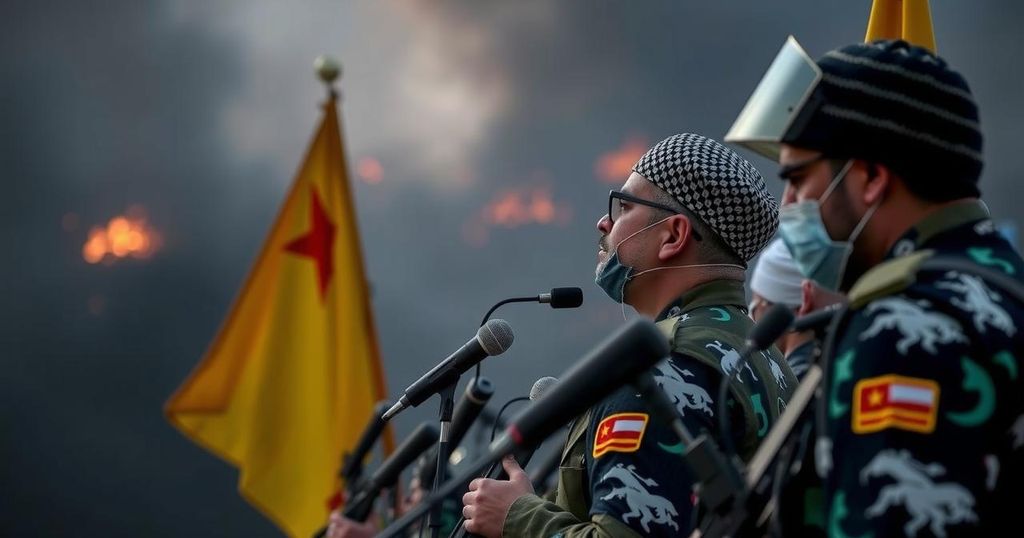Hezbollah has entered a 60-day cease-fire with Israel after 13 months of warfare that significantly weakened its military and political standing. The conflict led to the assassination of key leaders and widespread devastation in loyal communities, raising questions about the organization’s future influence in Lebanon. This cease-fire represents both a tactical retreat and a potential shift in the balance of power within Lebanon’s political landscape.
Hezbollah has recently entered a cease-fire agreement with Israel following a challenging 13-month conflict that has severely weakened its position. Once regarded as the formidable protector of Lebanon, the organization’s claims of robust military capability and assurance of Iranian support have now crumbled. The newly established 60-day truce arises in the wake of relentless Israeli assaults that have deeply compromised Hezbollah’s operational effectiveness, revealing vulnerabilities in its command structure and eroding its popular backing.
The conflict has seen the assassination of high-ranking Hezbollah officials, including the long-standing leader Hassan Nasrallah, due to Israeli intelligence operations. Additionally, widespread devastation in Hezbollah’s strongholds has displaced hundreds of thousands, resulting in an uncertain future for numerous communities. Critics argue that the war has isolated Hezbollah politically, leaving it weakened against the backdrop of a possible resurgence of dissent from other Lebanese factions.
This cease-fire, intended as a precursor to a more stable peace, raises questions about Hezbollah’s ability to maintain its political influence in Lebanon going forward. The extensive damage from the conflict poses significant reconstruction challenges for Lebanon, intensifying scrutiny of Hezbollah’s strategic miscalculations that ignited this prolonged hostilities.
In light of these developments, Hezbollah’s stance in Lebanon is at a crossroads, with many anticipating that this conflict may have diminished its capacity to govern and assert control in future political scenarios, despite the uncertainty surrounding the reactions of other political entities in the country.
The ongoing conflict between Hezbollah and Israel has persisted for over a year, significantly impacting Lebanon’s political landscape. Initially, Hezbollah positioned itself as the primary defender of the nation against Israeli incursions, bolstered by claims of superior military expertise. However, the protracted fighting has led to substantial losses, exposing the organization’s shortcomings and reshaping perceptions of its strength and influence. The cease-fire marks a critical juncture, not only for Hezbollah but also for the broader political dynamics within Lebanon and its relationships with neighboring states.
The acceptance of a cease-fire by Hezbollah underscores a significant turning point following a year of intense hostilities with Israel. With its military capabilities compromised and support eroded, Hezbollah faces the daunting task of reassessing its role within Lebanon’s political framework. The repercussions of this conflict may well extend beyond immediate military considerations, as it challenges the organization’s longstanding assertions of power and influence among Lebanese factions. Thus, while the cease-fire offers a temporary reprieve, the deeper consequences of the war will continue to shape Lebanon’s political climate for the foreseeable future.
Original Source: www.nytimes.com






